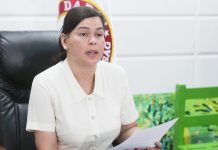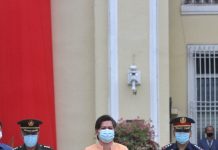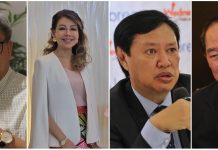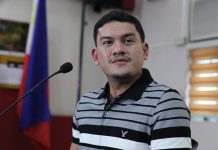Aurora Rep. Juan Edgardo Angara is seeking to plant the seed of a deeper multi-cultural understanding among Filipinos– Christians, Muslims and Lumads alike — especially in Mindanao by proposing the this should be fully incorporated in the country’s educational system.
“We all, as Filipinos, must build on the understanding and appreciation of these values. It is not impossible for unity to flourish in diversity,” Angara declared.
Angara, chairman of the House Committee on Higher and Technical Education, is author of House Bill No. 270 which proposes the inclusion in the curricula of all levels of education and training in all schools in the country, starting in Mindanao, of the study and understanding of Moro history, culture and identity.
“We must always highlight the positive relations among Filipinos, especially Muslims and Christians, as well as their common origins and other points of commonality. We may have our differences but we have more in common, on top of which, is the clamor for peace,” Angara pointed out.
Angara stressed the need for a deeper understanding of the so-called Moro problem which he considers as a “historical and systematic marginalization and minoritization of the Islamized ethno-linguistic” groups in the Mindanao islands.
“This happened first during the colonial powers, Spain then the U.S., and more recently by successor Philippine governments dominated by an elite with a Christian-Western orientation,” he recalled.
“It is said that peace begins in the hearts and minds of persons. One of the most important institutions for this is the school or educational system,” Angara stated. He believes that the vertical top-level peace negotiation with Muslim groups should be complemented with horizontal people to people peace among the Moros or Muslims, Christian settlers and their descendants, and the Lumads, especially at the community level.
House Bill No. 270 likewise mandates DepEd and CHED “to initiate and maintain regular programs and special projects to provide venues for information and discussion of Moro history, culture and identity, including the utilization of informal education and other means to stress the importance of respect therefore.’
“This measure should be able to redirect our educational system towards equity and justice among all citizens of the republic,” Angara concluded.
“We all, as Filipinos, must build on the understanding and appreciation of these values. It is not impossible for unity to flourish in diversity,” Angara declared.
Angara, chairman of the House Committee on Higher and Technical Education, is author of House Bill No. 270 which proposes the inclusion in the curricula of all levels of education and training in all schools in the country, starting in Mindanao, of the study and understanding of Moro history, culture and identity.
“We must always highlight the positive relations among Filipinos, especially Muslims and Christians, as well as their common origins and other points of commonality. We may have our differences but we have more in common, on top of which, is the clamor for peace,” Angara pointed out.
Angara stressed the need for a deeper understanding of the so-called Moro problem which he considers as a “historical and systematic marginalization and minoritization of the Islamized ethno-linguistic” groups in the Mindanao islands.
“This happened first during the colonial powers, Spain then the U.S., and more recently by successor Philippine governments dominated by an elite with a Christian-Western orientation,” he recalled.
“It is said that peace begins in the hearts and minds of persons. One of the most important institutions for this is the school or educational system,” Angara stated. He believes that the vertical top-level peace negotiation with Muslim groups should be complemented with horizontal people to people peace among the Moros or Muslims, Christian settlers and their descendants, and the Lumads, especially at the community level.
House Bill No. 270 likewise mandates DepEd and CHED “to initiate and maintain regular programs and special projects to provide venues for information and discussion of Moro history, culture and identity, including the utilization of informal education and other means to stress the importance of respect therefore.’
“This measure should be able to redirect our educational system towards equity and justice among all citizens of the republic,” Angara concluded.






